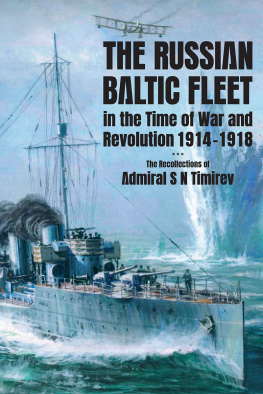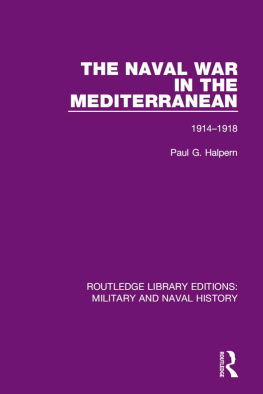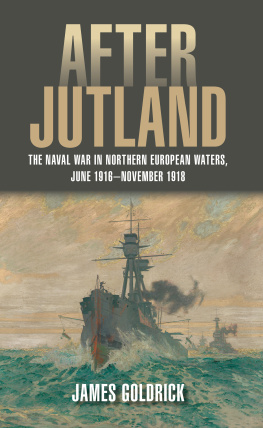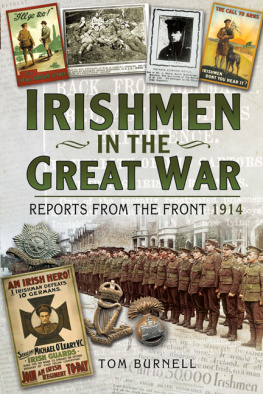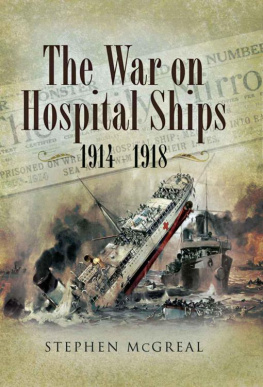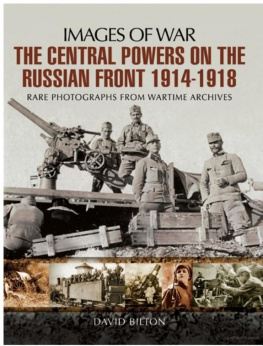Stephen C Ellis - The Russian Baltic Fleet in the Time of War and Revolution, 1914–1918
Here you can read online Stephen C Ellis - The Russian Baltic Fleet in the Time of War and Revolution, 1914–1918 full text of the book (entire story) in english for free. Download pdf and epub, get meaning, cover and reviews about this ebook. year: 2020, publisher: Pen and Sword/Seaforth Publishing, genre: Science fiction. Description of the work, (preface) as well as reviews are available. Best literature library LitArk.com created for fans of good reading and offers a wide selection of genres:
Romance novel
Science fiction
Adventure
Detective
Science
History
Home and family
Prose
Art
Politics
Computer
Non-fiction
Religion
Business
Children
Humor
Choose a favorite category and find really read worthwhile books. Enjoy immersion in the world of imagination, feel the emotions of the characters or learn something new for yourself, make an fascinating discovery.
- Book:The Russian Baltic Fleet in the Time of War and Revolution, 1914–1918
- Author:
- Publisher:Pen and Sword/Seaforth Publishing
- Genre:
- Year:2020
- Rating:3 / 5
- Favourites:Add to favourites
- Your mark:
- 60
- 1
- 2
- 3
- 4
- 5
The Russian Baltic Fleet in the Time of War and Revolution, 1914–1918: summary, description and annotation
We offer to read an annotation, description, summary or preface (depends on what the author of the book "The Russian Baltic Fleet in the Time of War and Revolution, 1914–1918" wrote himself). If you haven't found the necessary information about the book — write in the comments, we will try to find it.
Stephen C Ellis: author's other books
Who wrote The Russian Baltic Fleet in the Time of War and Revolution, 1914–1918? Find out the surname, the name of the author of the book and a list of all author's works by series.
The Russian Baltic Fleet in the Time of War and Revolution, 1914–1918 — read online for free the complete book (whole text) full work
Below is the text of the book, divided by pages. System saving the place of the last page read, allows you to conveniently read the book "The Russian Baltic Fleet in the Time of War and Revolution, 1914–1918" online for free, without having to search again every time where you left off. Put a bookmark, and you can go to the page where you finished reading at any time.
Font size:
Interval:
Bookmark:

THE RUSSIAN BALTIC FLEET
* * *
The Recollections of
Admiral S N Timirev

Translation copyright Stephen Ellis 2020
First published in Great Britain in 2020 by
Seaforth Publishing,
A division of Pen & Sword Books Ltd,
47 Church Street,
Barnsley S70 2AS
www.seaforthpublishing.com
First published in Russian by the American Society for
Russian Naval History New York, 1961
British Library Cataloguing in Publication Data
A catalogue record for this book is available from the British Library
ISBN 978 1 5267 7702 7 ( HARDBACK )
ISBN 978 1 5267 7703 4 ( EPUB )
ISBN 978 1 5267 7704 1 ( KINDLE )
All rights reserved. No part of this publication may be reproduced or transmitted in any form or by any means, electronic or mechanical, including photocopying, recording, or any information storage and retrieval system, without prior permission in writing of both the copyright owner and the above publisher.
Pen & Sword Books Limited incorporates the imprints of Atlas, Archaeology, Aviation, Discovery, Family History, Fiction, History, Maritime, Military, Military Classics, Politics, Select, Transport, True Crime, Air World, Frontline Publishing, Leo Cooper, Remember When, Seaforth Publishing, The Praetorian Press, Wharncliffe Local History, Wharncliffe Transport, Wharncliffe True Crime and White Owl
T HE MEMOIR OF SERGEI TIMIREV (18751932) of his service as a commanding officer in the Russian Baltic Fleet during the First World War and the Russian revolution of 1917 was written in the early 1920s while he was commanding commercial ships in Chinese exile. Decades later, the manuscript was rescued from oblivion and published in 1961 in its original Russian by a society of Russian naval officers in New York who were a part of the Russian diaspora scattered by the revolution across the world. As an historical document, Timirevs personal account of the war in the Baltic and the revolution in the fleet is distinguishable from the recollections of other senior Russian naval officers by being a coherent narrative written within a few years of the events it describes. In contrast, the recollections of other admirals, such as Kedrov and Pilkin, were fragmentary articles published in various migr journals through the 1920s and 1930s and the more substantial memoirs of Admirals Bubnov and Dudorov were composed decades after the war. For several decades after its publication Timirevs account thus provided a primary insight for historians into the events and personalities of this time of war and revolution.
While the February Revolution was a largely spontaneous upheaval of the Russian population against a corrupt and badly led tsarist government in the midst of a losing war, it was especially violent in the Baltic Fleet, with its top officers murdered, such as the commander-in-chief Admiral Adrian Nepenin and the commandant of the Kronstadt training base, Admiral Robert Viren (both Finnish names), and many other officers arrested or driven away. In fact, a radical sailor memoirist depicted these events as October in February, that is that the more violent Bolshevik Revolution later that year had already occurred in the fleet in February. Timirev survived this turmoil and by the end of 1917 had reached the rank of rear admiral in commandof a cruiser squadron, but by that time the fleet had to all practical purposes disappeared as a fighting unit: many officers had deserted and revolutionary sailors had gone over to the Bolshevik Red Guards and then later to the Red Army. This was the final convulsion through which imperial Russia passed after successive democratic provisional governments were overthrown by the more radical socialist revolution and the crucible of civil war tested the Russian people to the limit.
In this chaotic situation, Timirev followed his natural instincts to support law and order and traditional rule, assisting especially the cause of a fellow naval officer, Admiral Alexander Kolchak, a leader of White anti-Bolshevik forces in Siberia, that proved ultimately to be a lost cause. Timirevs exit from Russia by way of Siberia into China, along with many other refugees from the Bolshevik Revolution, represents but a part of the exodus from the turmoil of revolution in post-First World War Europe.
Stephen Ellis, educated in Australia and at Duke University in the United States, has now performed a second rescue effort in this translation of the 1961 original publication that brings the Timirev story to a much wider audience of students of the revolution in the English-speaking world. He brings to it his wide reading in world and naval history, sound knowledge of Russian, experience in academic teaching and archival administration, and especially his personal dedication to the generally less well-known upheaval of a navy in war and revolution.
Norman E Saul
Professor Emeritus, Center for Russian,
East European & Eurasian Studies
University of Kansas,
author of Sailors in Revolt: The Russian Baltic Fleet in 1917
(Lawrence: The Regents Press of Kansas, 1978)
M Y AIM IN TRANSLATING THESE memoirs is to bring an important and authoritative historical source to those interested in Russian or naval history who are unable to access it in the original Russian.
Their author, Rear Admiral Timirev, was well placed to make observations on the character of many of the significant commanding officers and also many of the operations of the Baltic Fleet from the beginning of the war in 1914 up to his discharge from the fleet in 1918. He had trained with many of the key figures as a young man and shared battle experience with them in the Russo-Japanese War of 190405 and the siege of Port Arthur. He had spent a year in Japan as a prisoner of war with a number of them. His subsequent career in the Navy had brought him into contact with new recruits as well as with many serving officers. As the executive officer on the Imperial yacht Shtandart for some years, he had come into contact with senior members of the Navy establishment and of the Government, including the Imperial Household. His memoirs also exhibit an unusual degree of self-awareness.
The memoirs, written in Shanghai in 1922, remained unknown to scholars for several decades afterwards. However, since their publication in New York in 1961, in the absence of access to authoritative archives, many historians in the West have used these memoirs as an important source for the study of the role of the Navy in the Russian revolution, particularly as it unfolded in the north. They have been used also as a source in multiple studies of the naval war in the Baltic. Following the dissolution of the Soviet Union they have been re-published in Russia and have now been used by scholars there also as an authoritative source on the history both of the revolution and of the Russian Navy in the First World War.
The renewed interest within Russia in this period has given rise to many popular as well as scholarly interpretations. Foremost among the popular interpretations has been the 2008 film, and subsequent television series, directed by Andrei Kravchuk titled The Admiral, which focused on the intimate relationship between Timirevs wife Anna and his colleague Admiral A V Kolchak. This interpretation has seriously misrepresented the character of the author of these memoirs, Rear Admiral Sergei Nikolaevich Timirev. This tragic period in the history of Russia inevitably presents many choices to those wishing to interpret it in a creative and evocative way. One may question whether those choices should ever include slandering the character of a decent, honourable man who was loyal to his family and faithful to his duty towards his country. I trust that through this translation readers will be able to make up their own minds about such matters.
Font size:
Interval:
Bookmark:
Similar books «The Russian Baltic Fleet in the Time of War and Revolution, 1914–1918»
Look at similar books to The Russian Baltic Fleet in the Time of War and Revolution, 1914–1918. We have selected literature similar in name and meaning in the hope of providing readers with more options to find new, interesting, not yet read works.
Discussion, reviews of the book The Russian Baltic Fleet in the Time of War and Revolution, 1914–1918 and just readers' own opinions. Leave your comments, write what you think about the work, its meaning or the main characters. Specify what exactly you liked and what you didn't like, and why you think so.

